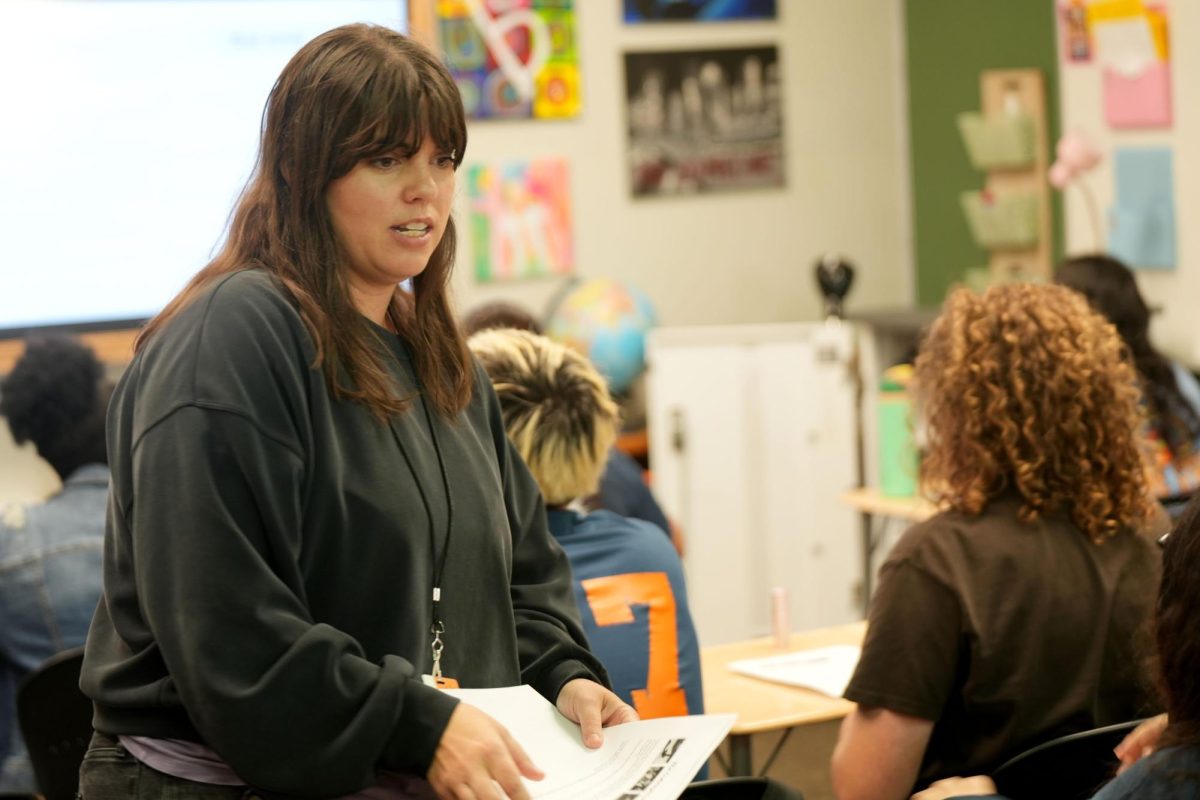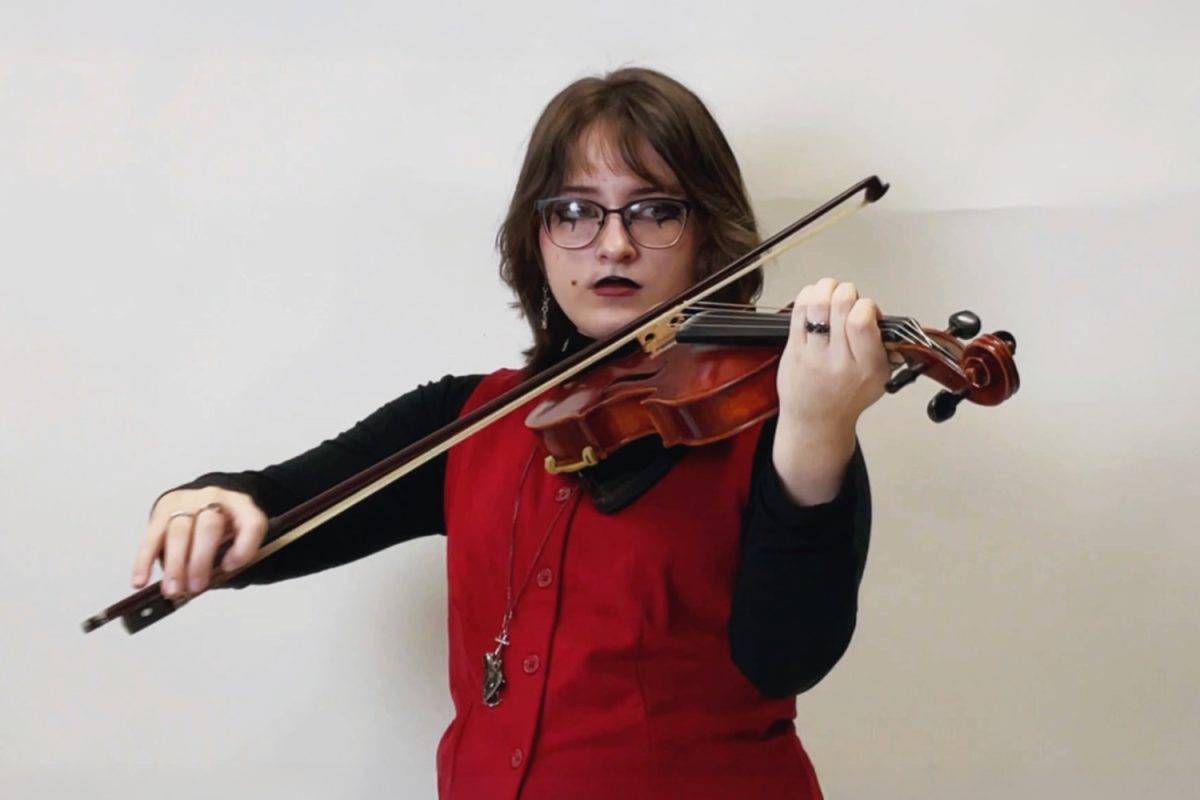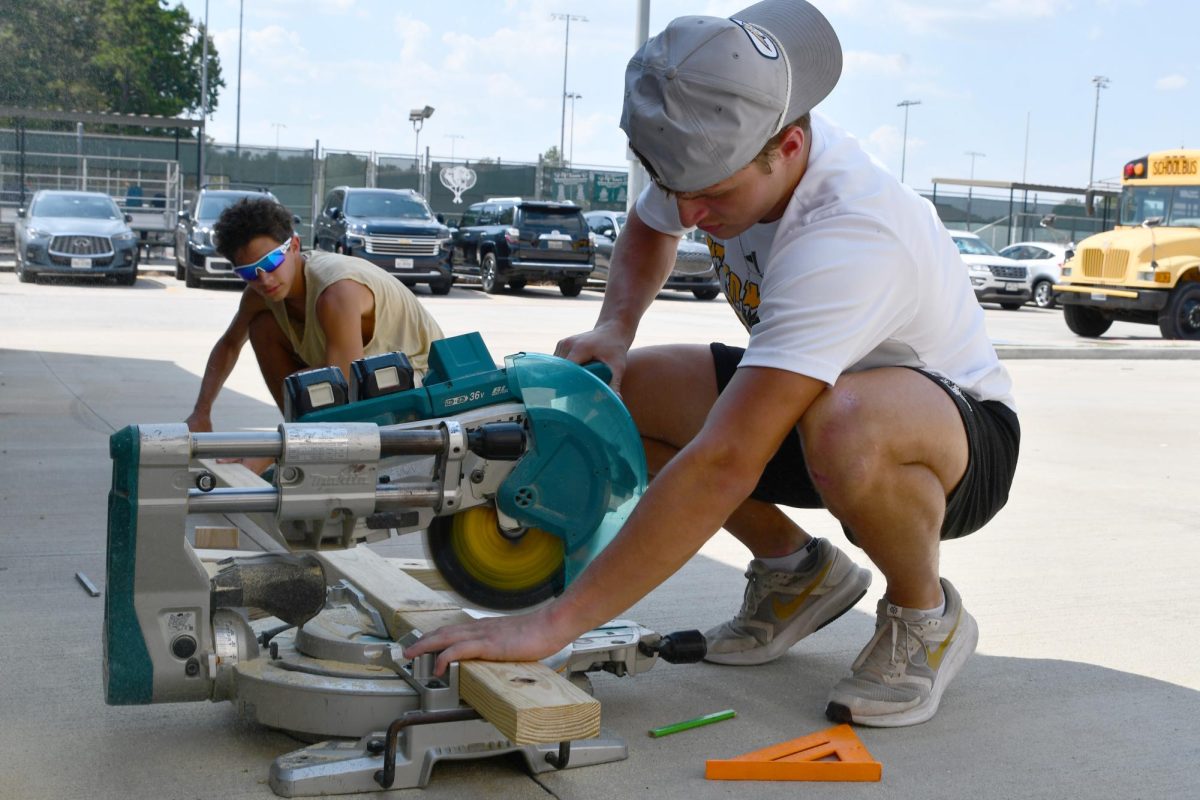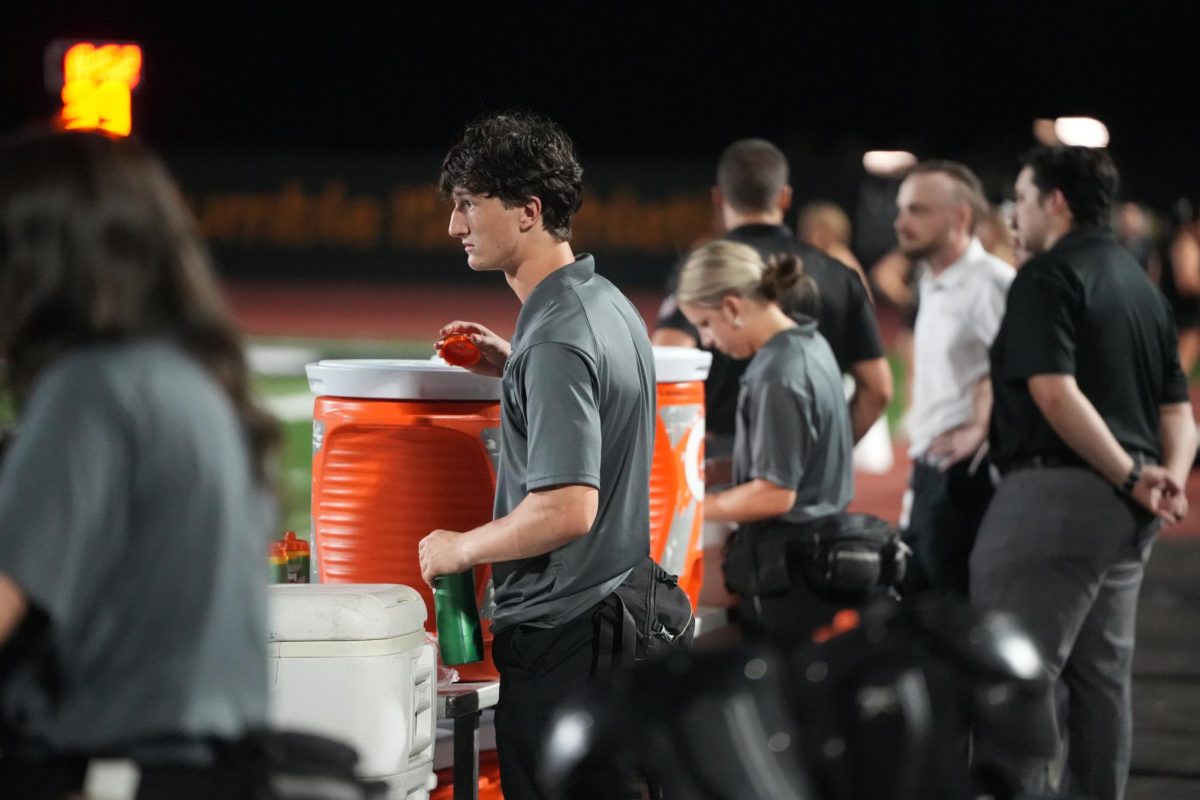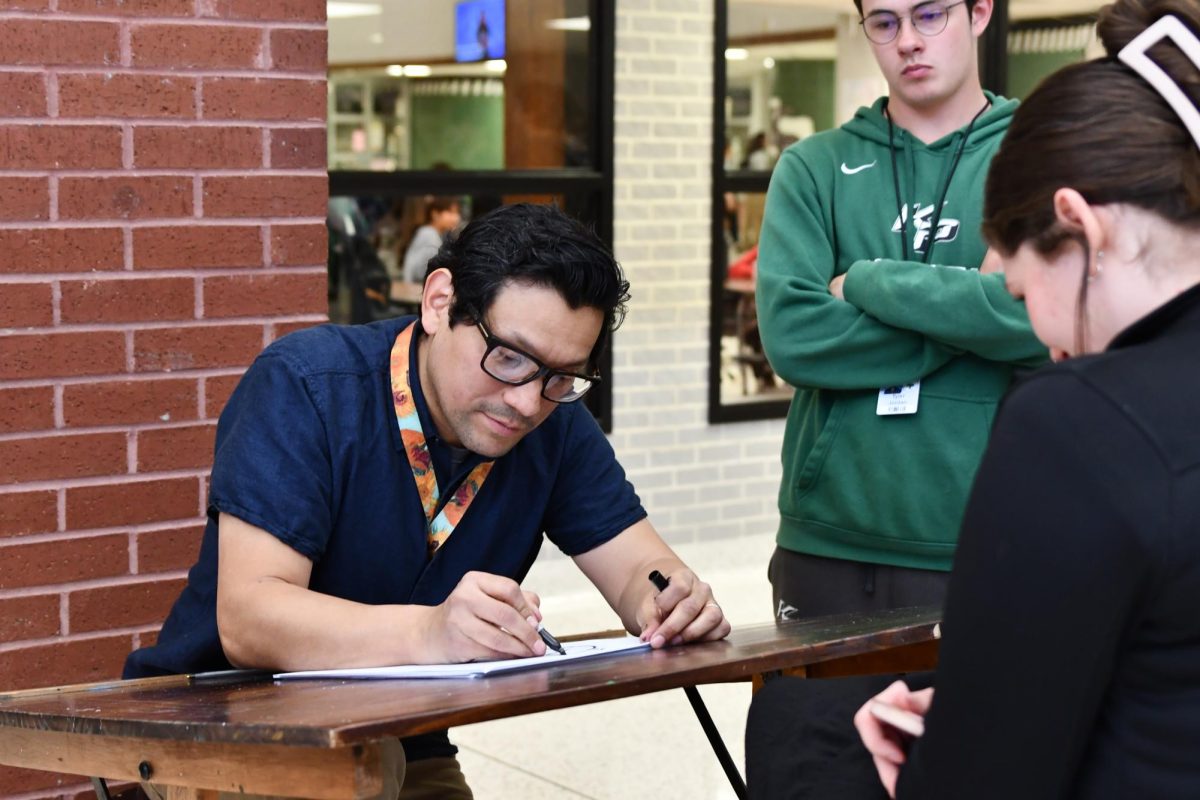History teacher Amy Balke struggled to stand on her own. She held onto different players as she attempted to coach the softball team through the third round of the 2017 UIL playoffs.
A week earlier, Balke lost most of the feeling in her legs and she had no idea why.
“I was walking around like a toddler,” Balke said. “It was as if [my foot was asleep] in both legs. I had a hard time walking, and as the week went on it got worse.”
At 27 years old, Balke had just been named Kingwood Park Teacher of the Year. She was busy with teaching and coaching, and she didn’t think much of the symptoms that were making walking a challenge. She was more focused on her role as the assistant softball coach. The team was right in the middle of the program’s deepest playoff run at the time.
Those close to her were growing more and more concerned. There were no quick answers though. It took numerous doctor visits, more health scares and two years of worry until Balke was officially diagnosed with multiple sclerosis, a rare disease that causes the breakdown of the myelin sheath, which is the protective layers of nerves.

The first health scare
While Balke was uncomfortable but not concerned in 2017, her mom was worried.
LeeAnn Balke reached out to her daughter’s childhood best friend Lindsey Humphries, who was a nurse in the neuro unit at Houston Methodist hospital. LeeAnn wanted to see if Humphries could help evaluate the pain.
The next day Humphries went with LeeAnn to support Balke and the softball team. She saw Balke’s leg pain firsthand.
“I got to the game and quickly knew something was wrong,” Humphries said. “I mean, it wasn’t typical. It wasn’t a back issue, something was up.”
After the win against Crosby, marking the softball team’s furthest playoff run in school history, Humphries insisted her friend go to the hospital.
Balke listened and admitted herself into Houston Methodist with the help of Humphries. Balke spent the week hospitalized.
“It was just really scary at first because we didn’t know what it was,” Balke said. “And they won’t diagnose [MS] until you have more than one lesion.”
The lesion the doctors found in 2017 was in her spinal cord, which caused the problems in her legs.
The diagnosis
Balke felt fine for about two years after the initial hospital visit. In 2019, panic struck.
“I remember I was in class and I got super fatigued from typing,” Balke said. “I was like, ‘Am I having a stroke?’ I was freaking out.”
Balke went to the hospital, and the doctors found a second lesion. During that trip she was officially diagnosed with MS.
Balke’s first lesion in 2017 was pretty severe, making the diagnosis in 2019 easy for doctors. They immediately started working to get her lesions under control.
Less than 200,000 Americans are diagnosed with MS each year. Doctors are still searching for a cure to MS, but current medicines and treatments help MS patients with the symptoms. MS patients can lose their ability to walk and some can lose their ability to move all together.
“When she got the diagnosis, like from the friend POV, obviously it’s very scary,” said Talya Bean, a longtime friend and colleague. “But it was also kind of a little bit of a relief for her, because we just didn’t know what was happening to her every year.”
Lifestyle changes
With the diagnosis, the doctors were able to prescribe her medicines to manage her MS symptoms. Balke also had to reevaluate her lifestyle. Stress and heat are some of the things that cause her MS symptoms to flare-up.
“Being out on the softball field every day until 6 p.m. and then being the pitching and catching coach and calling pitches in playoff games wasn’t ideal for me,” Balke said.
Balke tried to stick with coaching. But by early 2020, she decided a break from coaching was best for her health.
Balke had been around softball teams her whole life. She started playing t-ball as early as possible and was a bullpen catcher for the University of Texas softball team all through college. Her first job after college was a head softball coaching job near Fort Worth.
Stepping away from softball was tough.
Balke remained a history teacher on campus and a common face around the softball field. She still attends as many games as she can, and for a few seasons she drove the team bus to away games.
“I try to do stuff when I can to stay with them, but it’s definitely not the same,” Balke said.
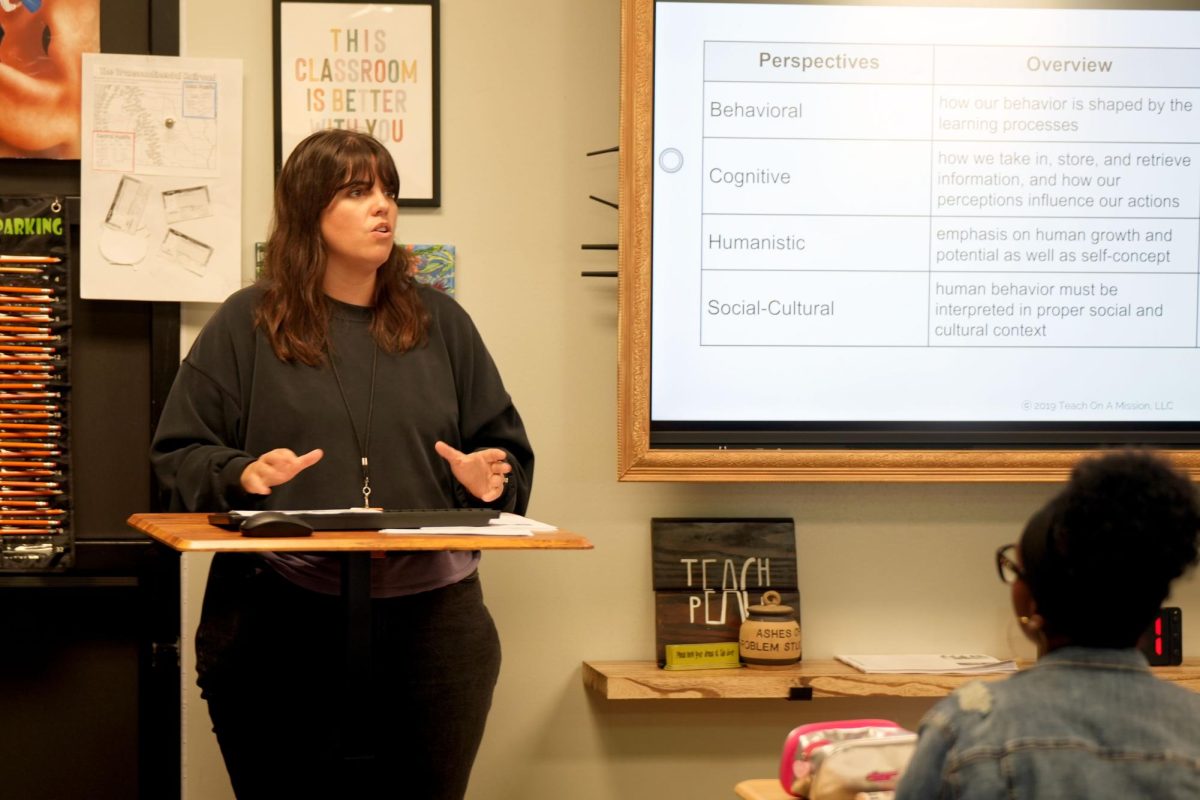
New normal
Since 2019, Balke’s lesions have remained stable with the help of the medications.
Her biggest struggle through the MS diagnosis has been getting her medicines covered by insurance companies.
“Dealing with insurance for specialized medication is a nightmare,” Balke said. “It takes a village every time.”
Balke’s personal battles with MS are hardly detectable at school.
“I don’t think any of the kids really know unless she comes right out and tells them,” Bean said.
Her AP Psychology class is a favorite among juniors and seniors because of her lecture style and projects. In the past three years, her AP testers have consistently had an 80% passing rate.
While her days can be stressful because of insurance battles or MS flare-ups, she tries to not carry that over into her classroom. She knows students are battling their own struggles on a regular basis. After everything, she knows sometimes even a small gesture can make a big difference.
And unlike back in 2017 when she just tried to push through her own pain, she now does not hesitate to ask for assistance when it becomes too much.
“If I come into your life, I want to be a positive impact, a good part of your day not a rough part,” Balke said. “I’m just a pretty optimistic person. I feel like I roll with the punches pretty well. Then there are times where it feels like a lot, but I’m better about understanding my limits. And I’m not afraid to ask for help when I need it.”



